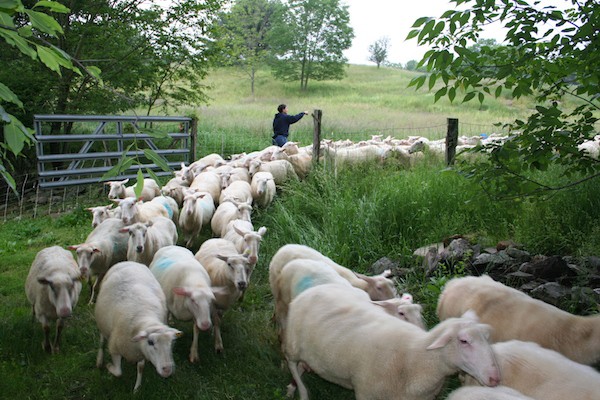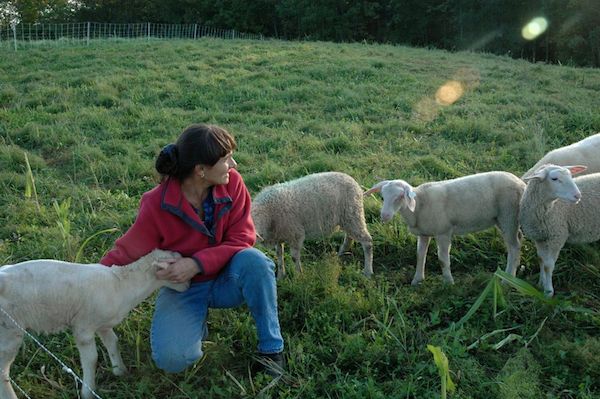
Karen Weinberg, owner of 3-Corner Field Farm, doesn’t often take the easy route. She got a PhD in Industrial Organizational Psychology (“a far cry from working with sheep,” as she puts it) so she and her husband, Paul Borghard, could afford the 100-acre farm in Shushan, N.Y. Though it was a 3½-hour commute from her New York City apartment, Weinberg traveled there on each weekend to tend to the farm as a hobby.

Photo Credit: WashingtonNYCounty.com
Things changed 19 years ago, when Borghard accepted a job transfer that landed the family in France.
“Most farms in the New York region are on the industrial level, with the cows kept inside and milked several times a day,” Weinberg said. “When I saw French farms producing high quality products, I thought, when we come back, that’s what I want to do.”
So that’s what Weinberg and Borghard did, starting with a few sheep that they milked by hand, and then put in an infrastructure for milking. Weinberg began tasting different cheeses and took a couple of cheesemaking courses. First, Weinberg made yogurt, and then added dairy products as she learned to make them, like chevre and Camembert, and eventually raw-milk aged cheeses after she built an aging cellar.
“I only make what I eat and like,” Weinberg said. “Not having an academic background in cheesemaking, I wouldn’t be a good judge of cheese just by looking at attributes. I have to eat it myself.”
The farm makes many cheeses, but is most well known for its Shushan Snow (pictured above), Frère Fumant, and Battenkill Brebis.
Weinberg doesn’t take the easy route when it comes to making decisions for the farm, either. 3-Corner Field only sells their products directly to clients like restaurants and farmer’s markets – though the process may not bring as much income, Weinberg feels as though selling to distributors would sacrifice the quality of the product. And while most dairies wean lambs away from their mothers for their milk, Weinberg tried five different systems of weaning before deciding on what she believed was best for her animals: raising the lambs with their mothers for the first five weeks of their lives, only weaning them when they’re physiologically able to digest grass.
“We’re missing a lot of the milk,” Weinberg said, “but the lambs get a good start.”

Photo Credit: Image courtesy of 3-Corner Field Farm
3-Corner Field Farm uses a pasture-based system, moving the sheep to a new pasture every day so they have the freshest, healthiest, (and most importantly, unfertilized) grass to munch on. Sheep are kept outside year-round, and have little hollows on the property for protection from extreme weather. “If we kept them all in a big barn, it’d be a lot less labor intensive,” Weinberg said. “But it’s not how those animals were designed to live; they were designed to put their heads down and eat until they’re full, and then lay down and feel safe.”
Besides Weinberg, two people work part-time every day to put up the pasture fencing and bring water for the animals. Weinberg’s two daughters work on the farm during the summer months, between semesters of school.
3-Corner Field Farm holds an open house every year for customers to see the operation by taking a tour. “We can proudly show how our animals are,” Weinberg said. “I feel like I don’t have to hide away what we do.”




